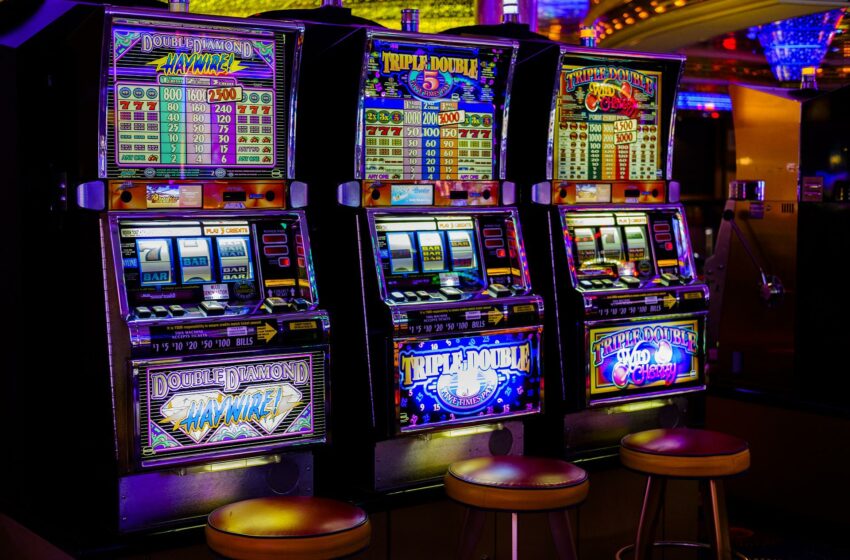Investigating the Ethics of Gaming Casinos

Gambling in casinos has long been a topic of interest and debate, attracting millions of players around the world. With a blend of luck, skill, and the excitement of uncertainty, casino games offer an exciting escape from everyday life. However, as entertainment becomes ever more accessible, it invites a deeper examination of the morality surrounding these games.
At the heart of the discussion lies the question of whether casinos promote responsible gaming or take advantage of vulnerable individuals. The appeal of potential winnings versus the truth of losses can create a complex dynamic, and understanding this balance is crucial for both players and operators. As we delve into the morals of casino gaming, we will explore the responsibilities of casinos, the effects on society, and the measures that can be taken to foster a healthier gaming environment.
The Impact of Casino Gaming on Society
Gambling in casinos has a notable influence on the community, affecting not only the economy but also interpersonal dynamics and community structures. The funds generated from casinos can lead to job creation and boost regional economies, as they provide multiple employment opportunities in multiple fields including food and beverage, leisure activities, and shopping. However, while the economic advantages can be significant, communities often grapple with the potential negative impacts that arise from increased gambling activity.
Additionally, the presence of casinos can lead to an rise in gambling addiction, presenting significant challenges for players and families. The thrill of casino games can quickly transform into a habitual habit, affecting personal relationships and leading to monetary issues. Many players may struggle with the loss of control over their gambling behaviors, resulting in a need for assistance programs and interventions to address this increasing issue. The social cost of addiction can extend through families and neighborhoods, creating an urgent need for sensible gambling approaches.
In addition to the economic and social consequences, casino gaming often showcases cultural attitudes towards uncertainty and entertainment. It can foster a sense of excitement and leisure, attracting visitors and boosting local travel. However, this allure may also conceal the broader implications of gambling as a form of entertainment, raising ethical questions about its promotion and availability. As communities weigh the advantages and disadvantages of casino gaming, the need for responsible practices and oversight becomes increasingly critical in ensuring that the beneficial elements are maximized while reducing the negative effects.
Ethical Concerns in Gambling Activities
The morality of casino gaming often revolve around the potential for addiction and its effects on people and households. Betting can lead to significant financial distress, impacting not only the gamblers but also their loved ones. As people become caught in the allure of winning, many lose sight of their budget, which can result in devastating outcomes such as bankruptcy. This poses moral questions about the duty of casinos in fostering safe gambling practices and providing support for those who may be dealing with gambling addiction.
Another major concern is the promotion of gambling to vulnerable populations. Casinos often aim at low-income people or communities with the offer of fast rewards, which can perpetuate patterns of financial struggle and hopelessness. In this situation, the ethics of marketing strategies used by casinos come under examination, as they may take advantage of the need of people seeking an way out from economic troubles. This exploitation raises moral questions about the honesty of the betting industry and its responsibility to protect its most at-risk customers.
Additionally, the effect of gambling operations on society as a entirety cannot be overlooked. While some argue that gambling establishments create employment and boost local economies, others point to the community costs associated with dysfunctional betting, increased crime rates, and a burden on public resources. Balancing economic benefits with the potential for social harm presents a challenging ethical dilemma for lawmakers and gambling operators alike. The challenge lies in finding a ethical approach that takes into account the welfare of individuals and communities while still permitting for the enjoyment of casino gaming.
Oversight Framework and Responsibilities
The regulatory framework related to gambling games is designed to ensure justice, integrity, and gambler safety. Different government bodies and casino commissions create and implement regulations that dictate how gaming games work, the guidelines for game creation, and the protocols for managing winnings. These regulations differ by locale but typically involve licensing requirements for businesses and strict measures to prevent deception and dishonesty.
In also to regulatory bodies, gaming establishments bear significant responsibility in upholding moral standards within their establishments. They must implement safe player practices that support participant security and education, including presenting self-limitation options and providing information about the hazards associated with gaming. casino en ligne Casinos are also obligated for educating employees to identify signs of difficult betting and understand the correct steps to support customers in distress.
Furthermore, openness in gambling operations is vital for building and keeping public trust. Casinos should present clear details about the chances of operations, advertising deals, and any related dangers. By promoting an environment of integrity and trust, operators can help reduce the potential negative impact of gaming while enhancing the general betting experience for all players.